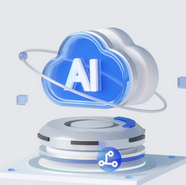人工智能研究英文翻译
人工智能
2023-12-26 17:30
1193
联系人:
联系方式:
阅读提示:本文共计约3484个文字,预计阅读时间需要大约9分钟,由本站编辑整理创作于2023年11月04日15时52分19秒。
Title: The Promising Future of Artificial Intelligence
Introduction
Artificial intelligence (AI) has become an integral part of our daily lives, transforming the way we communicate, work, and interact with each other. As technology continues to advance, AI is poised to revolutionize various industries and improve our quality of life in unprecedented ways. In this article, we will explore the potential impact of AI on various sectors and discuss some of the challenges that must be addressed to ensure its successful integration into our world.
Healthcare
One of the most significant areas where AI can make a difference is healthcare. By leveraging machine learning algorithms, AI systems can analyze vast amounts of data to identify patterns and predict disease outbreaks. This can help doctors make more informed decisions about patient care and ultimately lead to improved outcomes. Additionally, AI-powered robots can assist with surgery, rehabilitation, and other medical procedures, reducing human error and improving efficiency.
Education
AI can also revolutionize the education sector by personalizing learning experiences for each student. Through adaptive learning systems, AI can analyze students' performance and tailor instruction to their individual needs, helping them learn at their own pace. Furthermore, AI-powered tutors can provide real-time feedback and guidance, ensuring that students receive the support they need to succeed.
Transportation
AI has the potential to transform the transportation industry by introducing autonomous vehicles. These self-driving cars have the potential to reduce traffic accidents caused by human error, improve road safety, and ease congestion. Additionally, AI-powered traffic management systems can optimize traffic flow and reduce fuel consumption, contributing to a greener environment.
Energy
AI can also play a significant role in the energy sector by optimizing power generation and distribution. Through predictive analysis, AI systems can forecast energy demand and adjust production accordingly, minimizing waste and ensuring a reliable supply of electricity. Additionally, AI-powered smart grids can monitor and control the distribution of energy, enabling more efficient use of resources.
Challenges and Concerns
Despite the promising potential of AI, there are several challenges that must be addressed to ensure its successful integration into various sectors. One of the primary concerns is job displacement, as automation may replace human labor in certain industries. To mitigate this issue, governments and businesses must invest in education and training programs to help workers transition to new roles in the digital economy.
Additionally, privacy and security concerns must be addressed to protect individuals from potential misuse of AI technologies. This includes regulating the collection and use of personal data and implementing robust cybersecurity measures to safeguard against cyber-attacks.
Conclusion
The future of AI is undoubtedly bright, with the potential to revolutionize various industries and improve our quality of life. However, it is essential to address the challenges and concerns associated with its adoption to ensure a smooth transition to this exciting new era. By working together, we can harness the power of AI to create a better, more sustainable future for all.
本站涵盖的内容、图片、视频等数据系网络收集,部分未能与原作者取得联系。若涉及版权问题,请联系我们进行删除!谢谢大家!
阅读提示:本文共计约3484个文字,预计阅读时间需要大约9分钟,由本站编辑整理创作于2023年11月04日15时52分19秒。
Title: The Promising Future of Artificial Intelligence
Introduction
Artificial intelligence (AI) has become an integral part of our daily lives, transforming the way we communicate, work, and interact with each other. As technology continues to advance, AI is poised to revolutionize various industries and improve our quality of life in unprecedented ways. In this article, we will explore the potential impact of AI on various sectors and discuss some of the challenges that must be addressed to ensure its successful integration into our world.
Healthcare
One of the most significant areas where AI can make a difference is healthcare. By leveraging machine learning algorithms, AI systems can analyze vast amounts of data to identify patterns and predict disease outbreaks. This can help doctors make more informed decisions about patient care and ultimately lead to improved outcomes. Additionally, AI-powered robots can assist with surgery, rehabilitation, and other medical procedures, reducing human error and improving efficiency.
Education
AI can also revolutionize the education sector by personalizing learning experiences for each student. Through adaptive learning systems, AI can analyze students' performance and tailor instruction to their individual needs, helping them learn at their own pace. Furthermore, AI-powered tutors can provide real-time feedback and guidance, ensuring that students receive the support they need to succeed.
Transportation
AI has the potential to transform the transportation industry by introducing autonomous vehicles. These self-driving cars have the potential to reduce traffic accidents caused by human error, improve road safety, and ease congestion. Additionally, AI-powered traffic management systems can optimize traffic flow and reduce fuel consumption, contributing to a greener environment.
Energy
AI can also play a significant role in the energy sector by optimizing power generation and distribution. Through predictive analysis, AI systems can forecast energy demand and adjust production accordingly, minimizing waste and ensuring a reliable supply of electricity. Additionally, AI-powered smart grids can monitor and control the distribution of energy, enabling more efficient use of resources.
Challenges and Concerns
Despite the promising potential of AI, there are several challenges that must be addressed to ensure its successful integration into various sectors. One of the primary concerns is job displacement, as automation may replace human labor in certain industries. To mitigate this issue, governments and businesses must invest in education and training programs to help workers transition to new roles in the digital economy.
Additionally, privacy and security concerns must be addressed to protect individuals from potential misuse of AI technologies. This includes regulating the collection and use of personal data and implementing robust cybersecurity measures to safeguard against cyber-attacks.
Conclusion
The future of AI is undoubtedly bright, with the potential to revolutionize various industries and improve our quality of life. However, it is essential to address the challenges and concerns associated with its adoption to ensure a smooth transition to this exciting new era. By working together, we can harness the power of AI to create a better, more sustainable future for all.
本站涵盖的内容、图片、视频等数据系网络收集,部分未能与原作者取得联系。若涉及版权问题,请联系我们进行删除!谢谢大家!


